Is This Necessary or Inhumane?
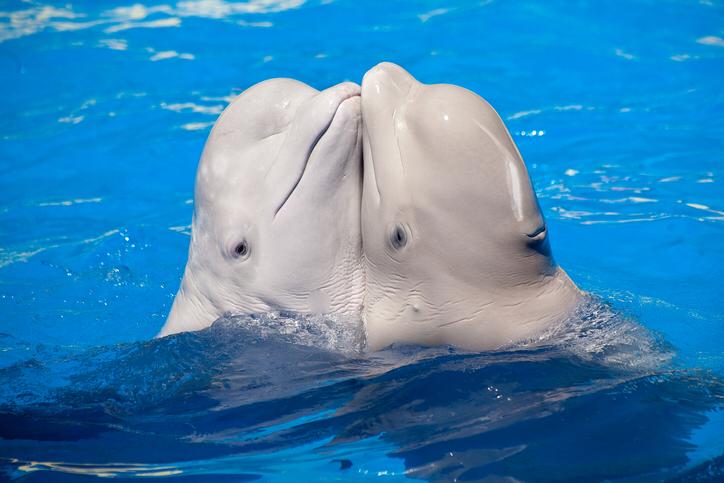
This story from a former Canadian zoo is both shocking and deeply complex, touching on issues of animal welfare, financial distress, and landmark environmental law. The threat to euthanize 30 beluga whales at Marineland has sparked international outcry and a scramble for solutions. Let’s delve into the facts surrounding this extraordinary and troubling situation.
1. Euthanasia Threat Over Financial Distress
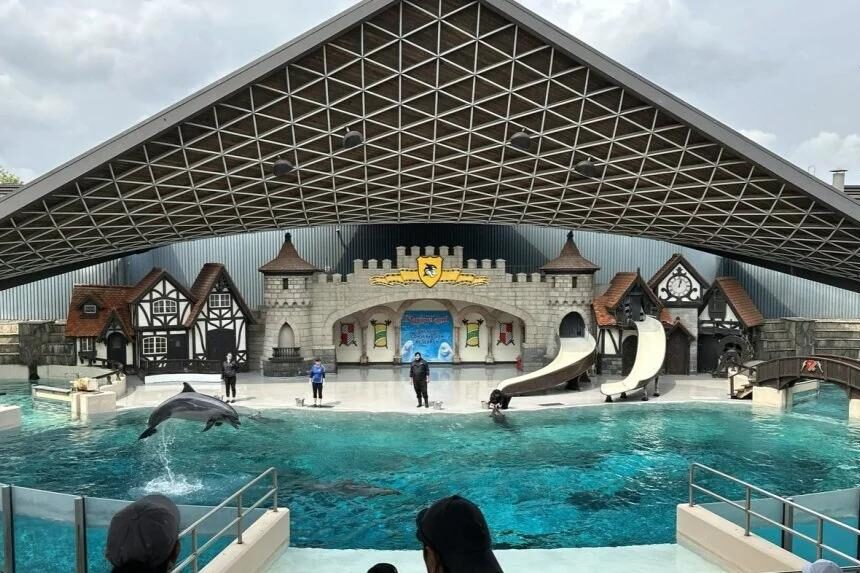
Marineland, the long-standing former zoo and amusement park in Niagara Falls, Ontario, has issued a dire warning to the Canadian government: it may be forced to euthanize its remaining 30 beluga whales due to a severe financial crisis. This extraordinary threat was presented in a letter to the federal government, outlining that the park is quickly running out of the necessary funds and resources to provide the required care for the complex needs of the marine mammals. The financial struggle is so profound that the park claims it can no longer sustain the expensive, specialized operations required for their upkeep, including maintaining their large, artificial habitat and providing constant veterinary and dietary care. This is an unprecedented situation that has elevated a private financial struggle into a major national animal welfare concern.
2. Park Warns of “Critical Financial State”

The park’s financial woes were formally communicated to the federal government, describing Marineland as being in a “critical financial state.” This formal warning emphasized the immediacy of the resource depletion, suggesting the park is nearing a point where it can no longer guarantee the adequate care for its marine life, including the belugas. The care of large marine mammals like belugas is incredibly expensive, requiring massive volumes of high-quality water to be filtered and chilled, specialized food, and round-the-clock professional staffing. This declaration of a resource shortage directly preceded the threat of euthanasia, framing the crisis as a matter of economic necessity rather than a choice. This framing puts intense pressure on both the provincial and federal governments to consider some form of intervention.
3 Euthanasia Threat Followed Denied Export Permit
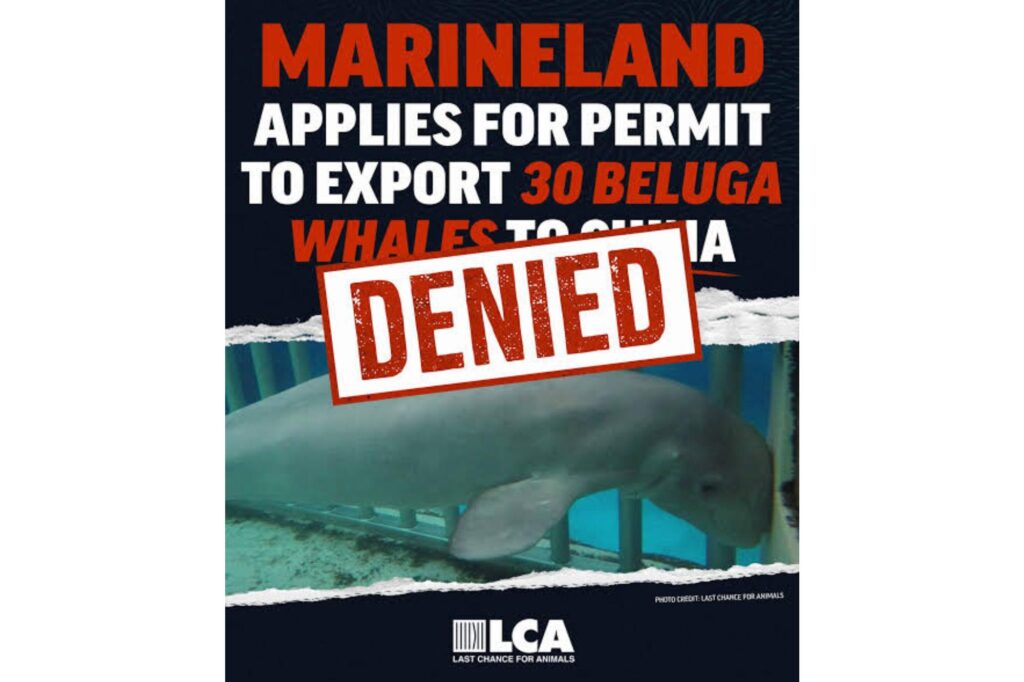
The threat to euthanize the whales came in the immediate aftermath of the Canadian government denying a crucial export permit that would have allowed Marineland to transfer its captive marine life overseas. The park had pinned its hopes for financial relief on this relocation, which would have offloaded the significant costs associated with the whales’ care. Once the permit was rejected, the park’s primary and immediate solution for its financial difficulties vanished. This sequence of events establishes a direct link between the government’s regulatory decision and the park’s subsequent, extreme reaction. Essentially, Marineland’s letter suggested that the euthanasia would be a “direct consequence of the minister’s decision,” signaling that the rejection of the permit left them with no viable financial alternative.
4. Proposed Relocation to Chinese Theme Park
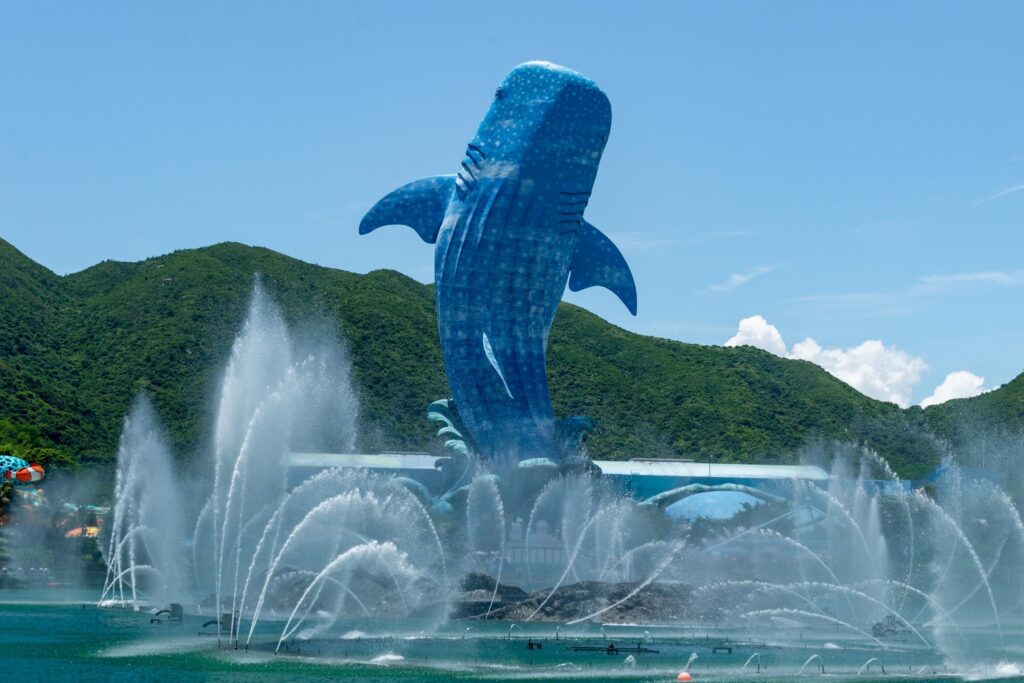
Marineland’s plan, which they hoped would resolve their financial and animal-care crisis, was to transfer the marine life to Chimelong Ocean Kingdom in China. This location is one of the world’s largest aquariums and a significant entertainment destination. From Marineland’s perspective, this transfer would have provided an immediate infusion of cash or a significant reduction in operating expenses, as they would no longer be responsible for the multi-million-dollar cost of the belugas’ upkeep. However, the proposed destination is a major commercial theme park, which ignited immediate and fierce opposition from animal welfare advocates who argued the transfer would simply move the whales from one exploitative public entertainment setting to another, entirely defeating the spirit of Canada’s new anti-captivity laws.
5. Fisheries Minister Blocked the Transfer Citing 2019 Law
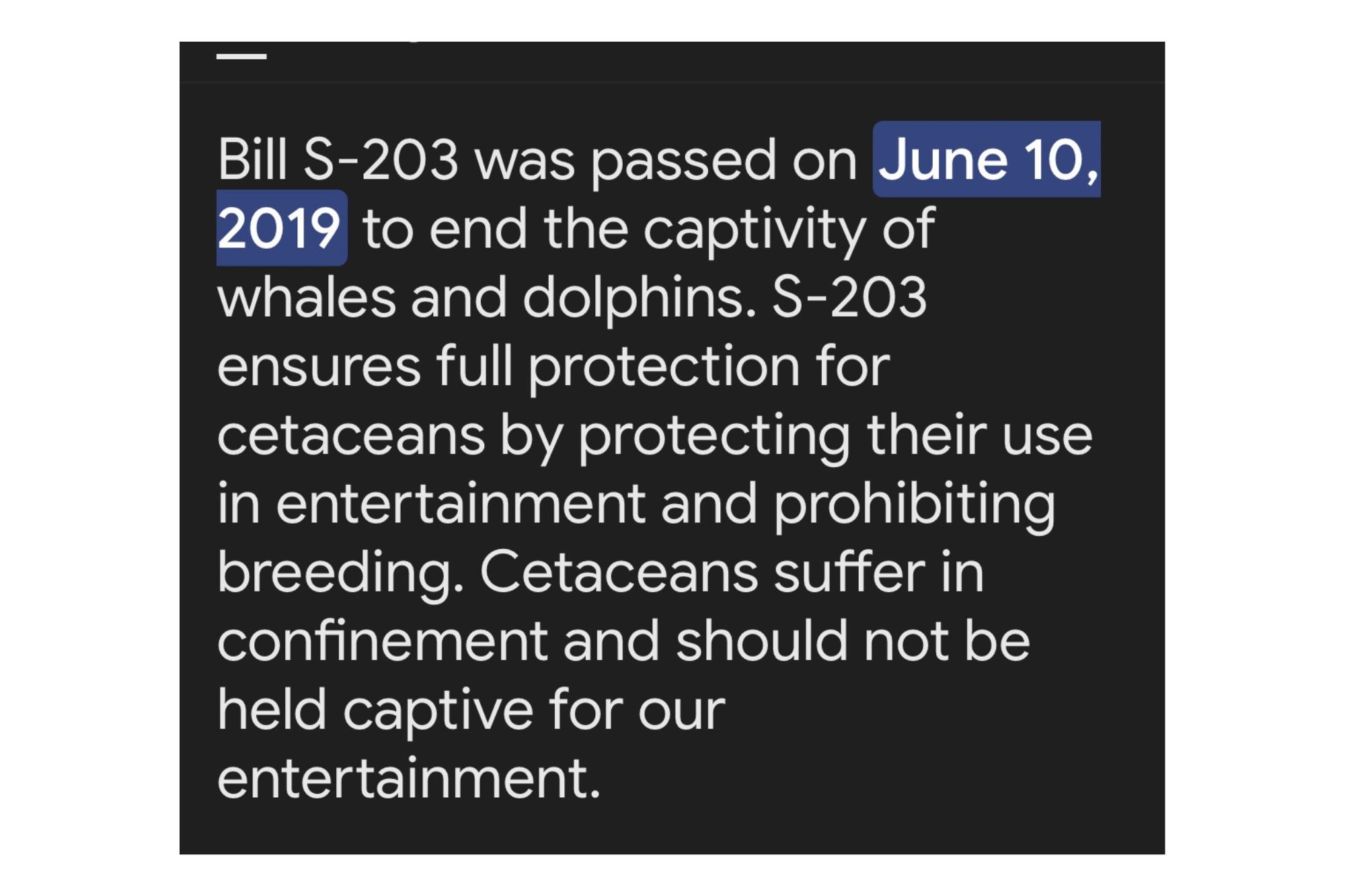
Canada’s Fisheries Minister, Joanne Thompson, ultimately made the decision to block the transfer. Her rationale was firmly rooted in a landmark 2019 federal law, the Ending the Captivity of Whales and Dolphins Act (S-203). This law was designed to prohibit the captivity, sale, and breeding of cetaceans—the scientific order that includes whales and dolphins—in Canada. Minister Thompson stated that approving an export that would “perpetuate the treatment these belugas have endured” and lead to a “return to public entertainment” would violate the spirit and intent of the legislation. This move set a strong precedent, signaling that Canada is serious about its commitment to end the commercial exploitation of marine mammals, even if the financial costs of that commitment are complex and challenging for private entities.
6. Minister Thompson Against Exploitation and Public Entertainment
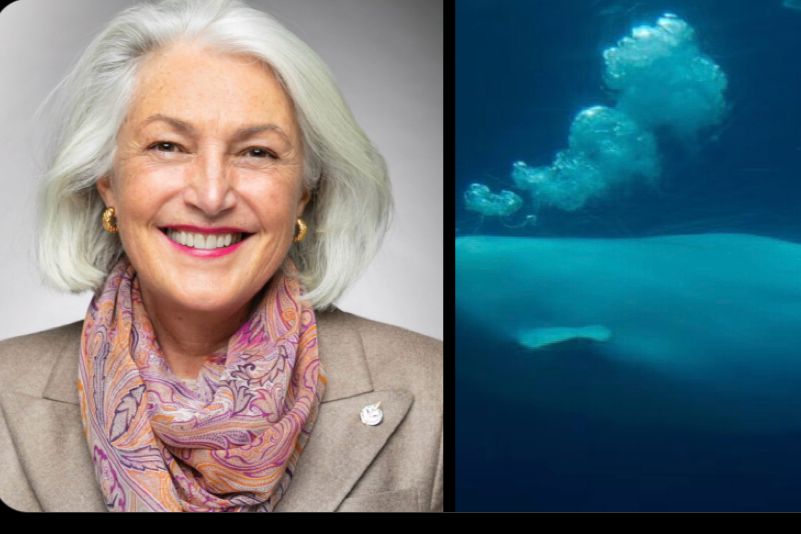
In her decision, Minister Thompson explicitly cited her inability to approve an export that would essentially undo the progress made by the 2019 legislation. She stated that approving the move would “perpetuate the treatment these belugas have endured” and directly contribute to their “return to public entertainment.” This statement underscores the ethical and policy-based grounds of the denial, moving beyond the simple financial transaction. The Minister’s stance is a clear rejection of the commercial exploitation of marine mammals, asserting that the Canadian government will not facilitate the global trade of these animals for the purpose of amusement. This moral and legal argument places the welfare of the animals and the integrity of the law above the financial needs of a private park.
7. Decision Consistent with 2019 Anti-Captivity Law
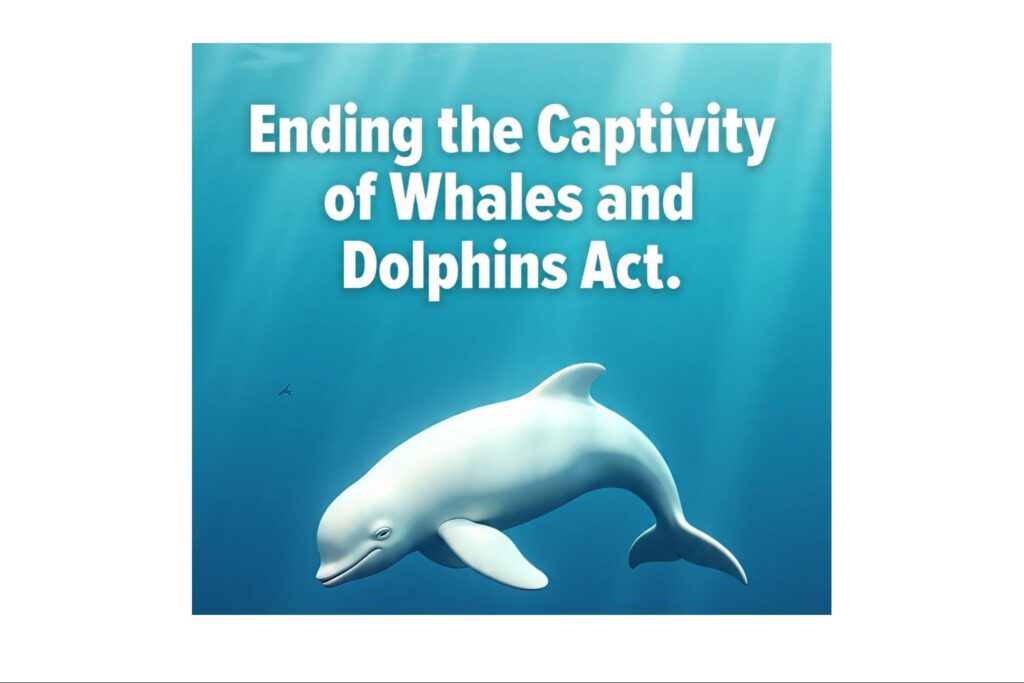
The Fisheries Minister’s denial of the export permit was a direct affirmation and enforcement of the 2019 law that prohibited the sale, captivity, and breeding of dolphins and whales in Canada. This legislation, known as the Ending the Captivity of Whales and Dolphins Act, was a watershed moment in Canadian animal welfare policy. By invoking this law, the Minister was signaling a strong national commitment to ending the commercial keeping of cetaceans for performance or display. The law, while containing some grandfather clauses for animals already in captivity, is aimed at phasing out the practice entirely, and the Minister’s refusal to allow a transfer for public show in another country was consistent with the fundamental principle that these animals should not be treated as commodities for profit and spectacle.
8. Marineland Called Euthanasia a “Direct Consequence”
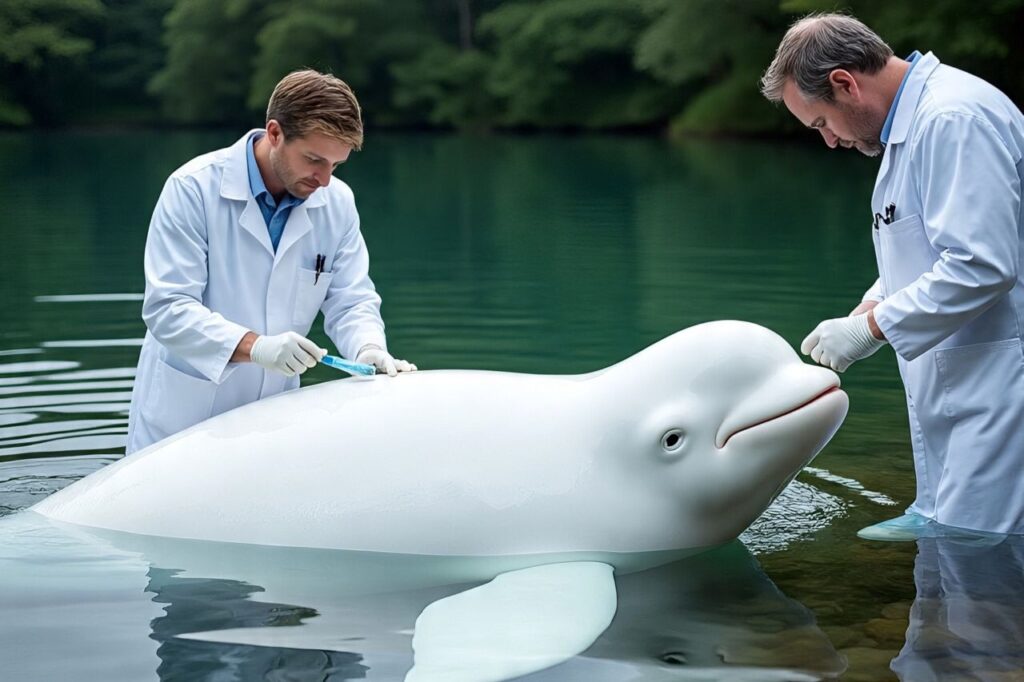
Marineland’s communication to the federal government was highly pointed, suggesting that euthanizing the whales would be a “direct consequence of the minister’s decision.” This highly-charged language framed the potential for the animals’ deaths not as an internal decision by the park, but as an unavoidable outcome forced by the government’s refusal to grant the export permit or provide financial aid. This phrasing serves to place the moral and political responsibility for the whales’ future squarely on the shoulders of the federal government, significantly escalating the public and political stakes of the crisis. It acts as a form of ultimatum, compelling the government to either reverse its decision or accept the potential outcome of the park’s financial collapse.
9. Government Refused Park’s Request for a Bailout

In addition to the denied export permit, Minister Thompson firmly refused Marineland’s request for emergency federal funds, effectively denying the park a government bailout. The Minister maintained that the park is a private, commercial entity and therefore responsible for its own expenses and financial planning. The government’s position is that taxpayers should not be obligated to subsidize the operations of a for-profit enterprise, even one facing a dire animal welfare crisis. This refusal reinforced the government’s stance that the park must find its own solutions for the care of its animals, a responsibility that legally rests with the owners. However, the refusal has intensified the standoff, leaving the park with few declared financial avenues to continue operations.
10. 20 Cetaceans Have Died at the Park Since 2019
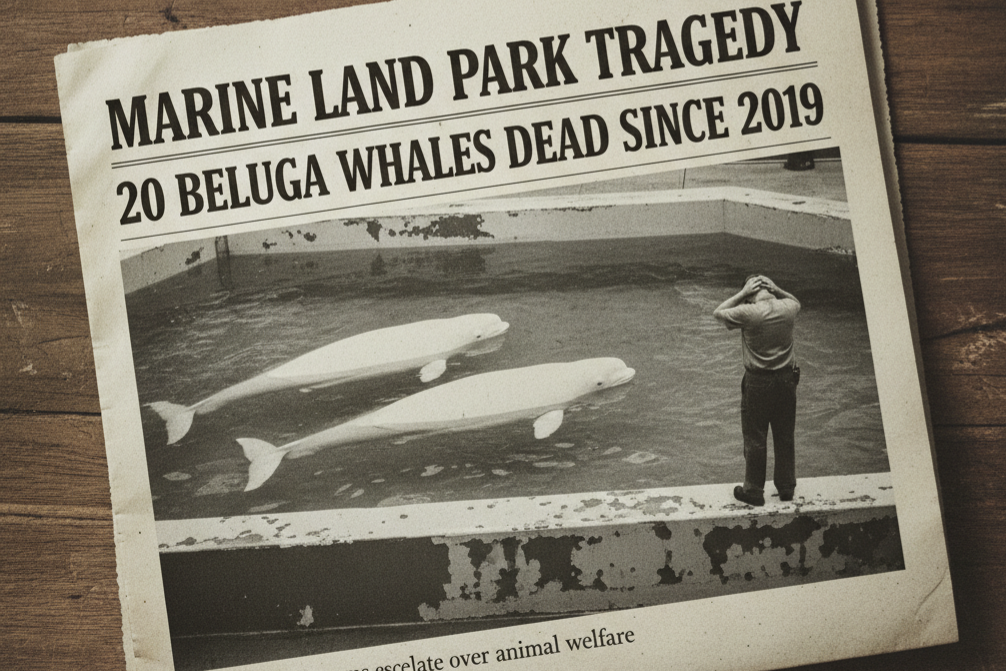
The serious concerns regarding Marineland’s ability to properly care for its marine life are underpinned by a tragic track record: 20 cetaceans have died at the park since the 2019 anti-captivity law came into effect. This disturbing figure includes 19 beluga whales and Canada’s last captive orca, Kiska, who passed away in 2023. These deaths have fueled intense scrutiny from animal welfare groups and the public, suggesting systemic problems within the facility. Critics argue that this high mortality rate points to an environment that is inadequate for the complex needs of these intelligent and sensitive marine mammals, adding urgency to the calls for government intervention to protect the remaining animals.
11. Canada’s Last Captive Orca, Kiska, Died in 2023
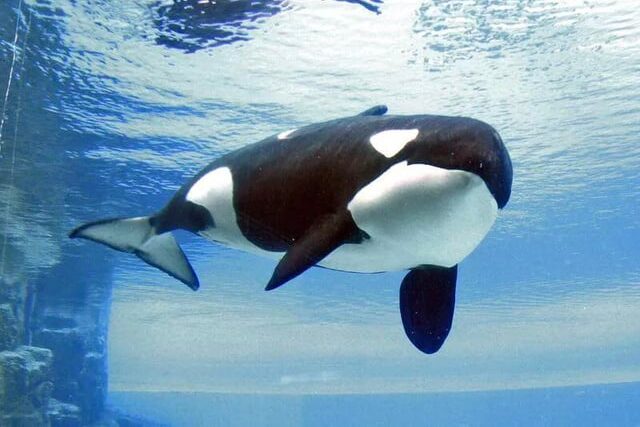
The death of the orca, Kiska, in March 2023, brought a significant amount of international attention and sorrow to the situation at Marineland. Kiska, often referred to as the “loneliest orca in the world,” had been in captivity for over four decades and was the last surviving captive orca in Canada. Her death was a high-profile case that cemented the park’s reputation in the eyes of many critics as a place of suffering, strengthening the arguments of those who oppose marine mammal captivity. Her passing highlighted the devastating effects of isolation and confinement on these highly social and intelligent creatures, adding emotional weight to the ongoing debate over the welfare of the remaining belugas.
12. Park Cited for Animal Distress Due to Poor Water Quality
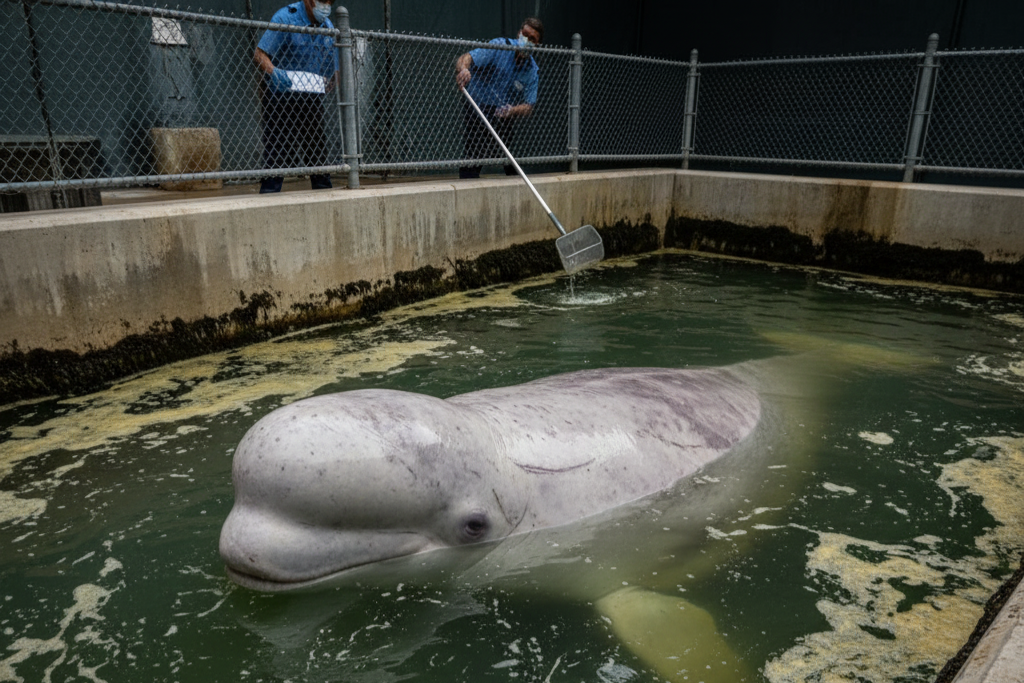
Marineland has been subject to numerous official interventions and animal welfare orders, the most significant of which was a 2021 finding that indicated all marine mammals were in distress primarily due to poor water quality in their tanks. A provincial inspection conducted by the Ontario Animal Welfare Services determined the water was chemically unsafe for the animals, a critical failure for a facility housing sensitive marine life. This finding directly contradicts the park’s claims of providing excellent care and serves as a major piece of evidence for animal welfare advocates demanding the whales be seized. The repeated official warnings and orders reinforce the argument that the facility is fundamentally failing to meet basic standards of care.
13. Animal Welfare Groups Urged Seizure by Province
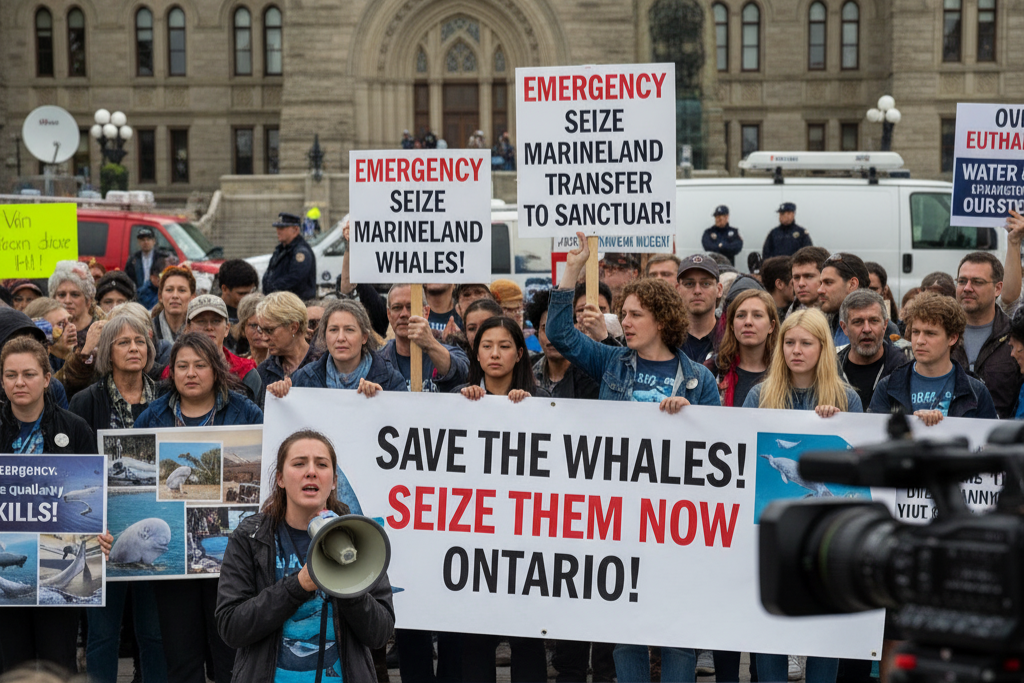
In response to the euthanasia threat and the park’s history of welfare violations, animal welfare groups and activists are applying intense pressure on the Ontario provincial government to intervene immediately. They are urging the province to use its legal authority to seize the remaining whales from Marineland. These advocates argue that the euthanasia threat, coupled with documented past failures in care, constitutes an emergency and a violation of provincial law. By seizing the animals, the province would take direct control of the whales’ fate, ensuring their safety and potentially initiating their transfer to a credible sanctuary or other welfare-focused facility, bypassing the park’s control entirely.
14. Provincial Animal Welfare Services (PAWS) Act Allows Intervention
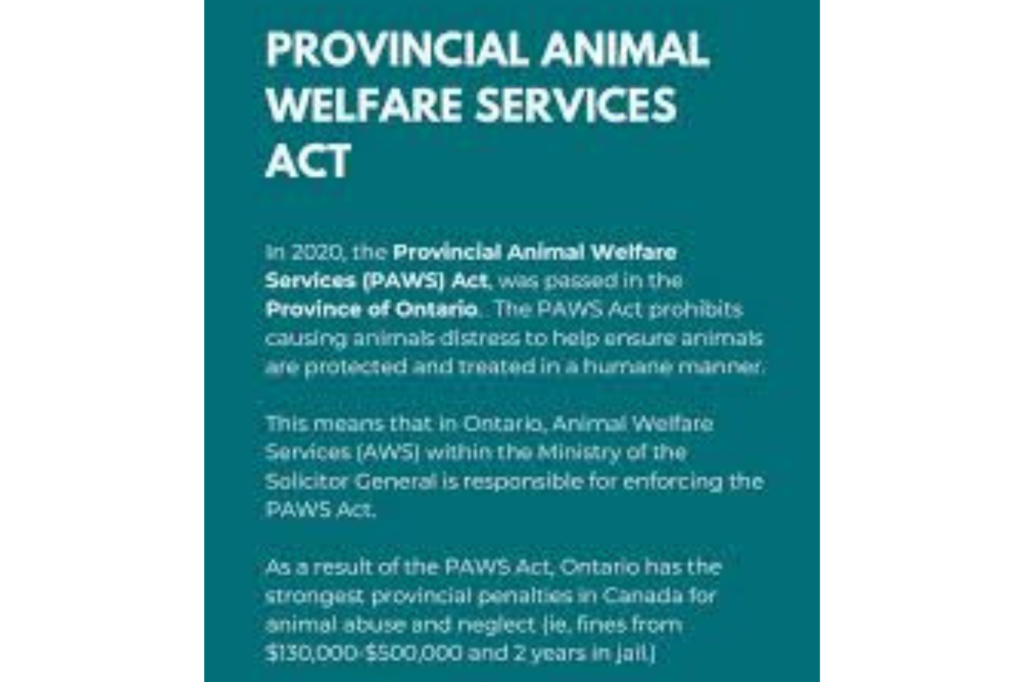
The calls for provincial intervention are legally grounded in the Provincial Animal Welfare Services (PAWS) Act of Ontario. This powerful piece of legislation gives the provincial government the authority to intervene, remove animals that are deemed to be in distress or at risk, and importantly, the right to recoup the costs associated with their seizure and care from the owners. This means the province has the legal framework to act decisively without being permanently burdened by the costs. The PAWS Act is the most direct legal tool available to activists for a rapid, forced removal of the belugas from Marineland’s control, setting up a legal and political battle between the park and the province.
15. Marineland Argued Captivity-Bred Whales Cannot Be Released
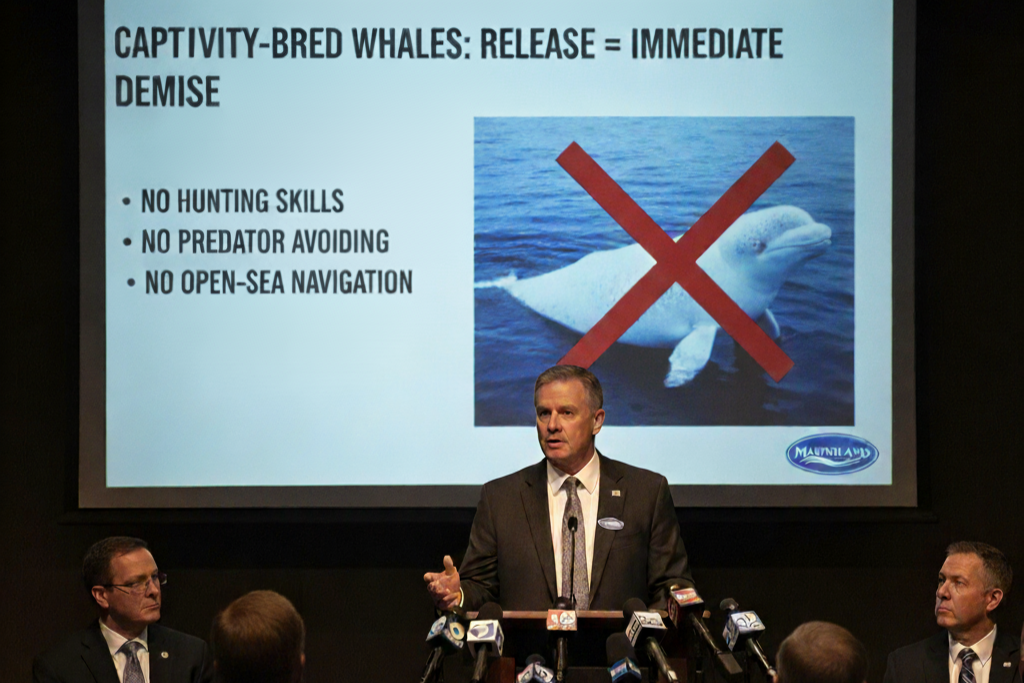
Marineland has consistently defended its control over the whales by using the “captivity-bred argument.” The park contends that because the belugas were born in their tanks, they lack the necessary survival skills—such as hunting, avoiding predators, and navigating in the open sea—to survive in the wild. Marineland stated that releasing the whales into the ocean would “unfortunately lead to their immediate demise.” This argument is a key component of their legal and public defense, asserting that they are the only party that can prevent the death of the animals. While experts debate the long-term potential for rehabilitation, this claim serves to justify keeping the belugas in the park’s care.
16. Park Claimed Whale Sanctuary is Too Polluted and Delayed
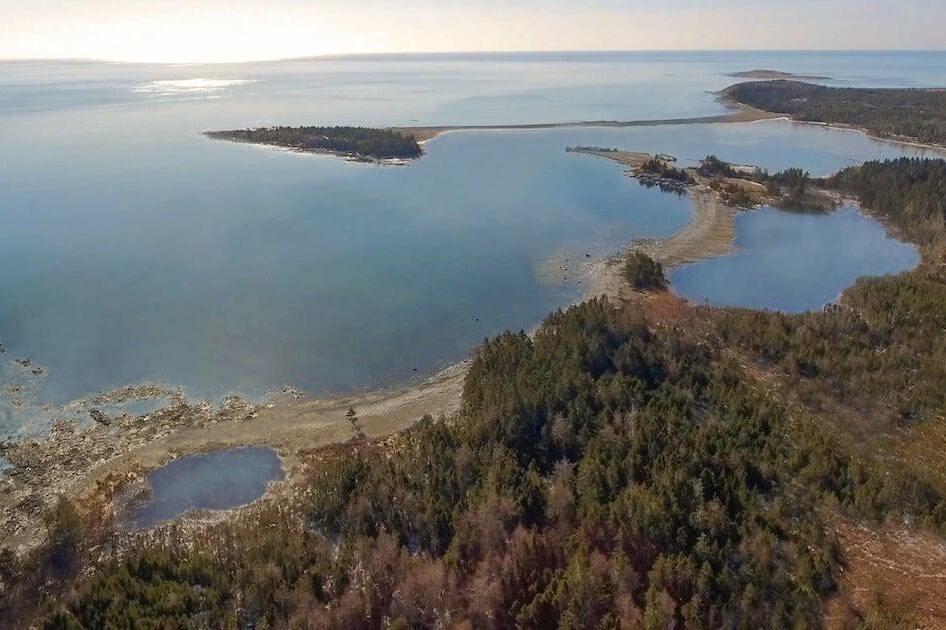
Marineland has preemptively countered the popular suggestion of a sanctuary relocation by stating that a proposed whale sanctuary in Nova Scotia is unsuitable. The park claimed the site is too polluted and, critically, not on track to be ready soon enough to provide an immediate solution to the whales’ precarious situation. This assertion directly challenges the most obvious, welfare-friendly alternative for the belugas’ future. By casting doubt on the sanctuary’s safety and timeline, Marineland strengthens its argument that no responsible alternative currently exists, further pressuring the government to reconsider their options, whether that be the Chinese transfer or a form of financial aid.
17. Minister Open to Reviewing Permits for Health and Well-Being
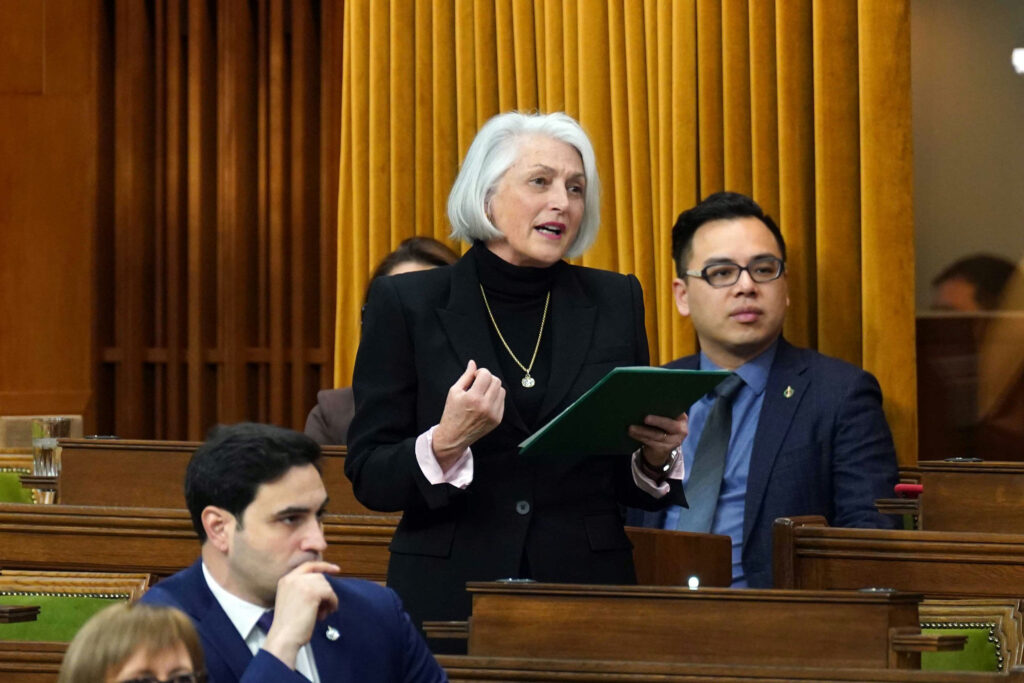
While Minister Thompson firmly rejected the commercial transfer to China, she has left the door open for future, alternative solutions, stating she is open to reviewing future permits that are genuinely focused on the animals’ “health and well-being.” She specifically mentioned the possibility of a transfer to a sanctuary as an acceptable option. However, she emphasized that the next crucial steps for the belugas’ fate fall to the park and the province of Ontario, not the federal government. This stance clearly defines the federal government’s role as a regulatory one, while placing the responsibility for the operational next steps and any welfare-based relocation plans back onto the park’s ownership and the provincial government’s animal welfare authority.
18. Nunavik Man Proposed Inuit-Led Arctic Relocation Solution
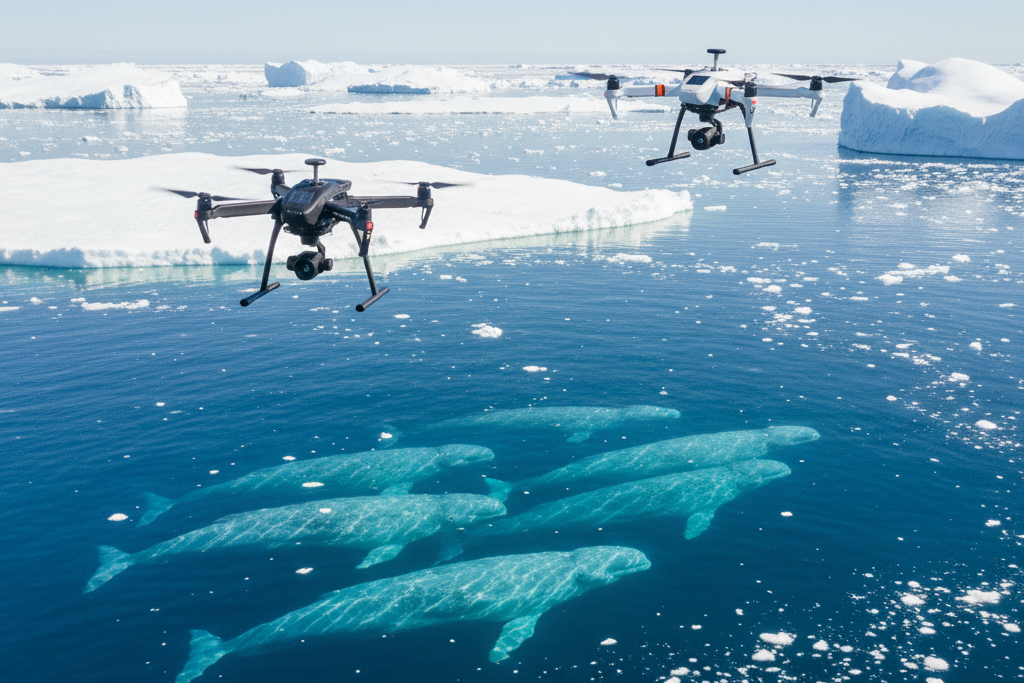
An innovative and culturally relevant alternative has emerged in the form of a proposal from a Nunavik man, Jason Etok who has put forward an Inuit-led solution to the crisis. The proposal involves relocating the belugas to the cold, pristine waters of the Canadian Arctic. This region is their native environment, and under this plan, the whales would become eligible to be hunted under a specific land claims agreement in the region. This highly unique proposal offers a potential solution that is both culturally sensitive and logistically challenging, presenting a third path that contrasts with both euthanasia and international commercial transfer. It opens a complex discussion about the intersection of animal welfare, Indigenous rights, and wildlife management in Canada.
This is a story with no easy answers, where economic necessity clashes head-on with legal precedent and deep moral questions about animal welfare. The fate of these 30 beluga whales now rests in a complex standoff between a private park, the provincial government’s welfare authority, and the federal government’s commitment to its anti-captivity law.
What are your thoughts on this unprecedented situation, and what solution do you think is the most responsible for the belugas?
This story Canadian Zoo Threatens to Euthanize 30 Beluga Whales was first published on Daily FETCH


